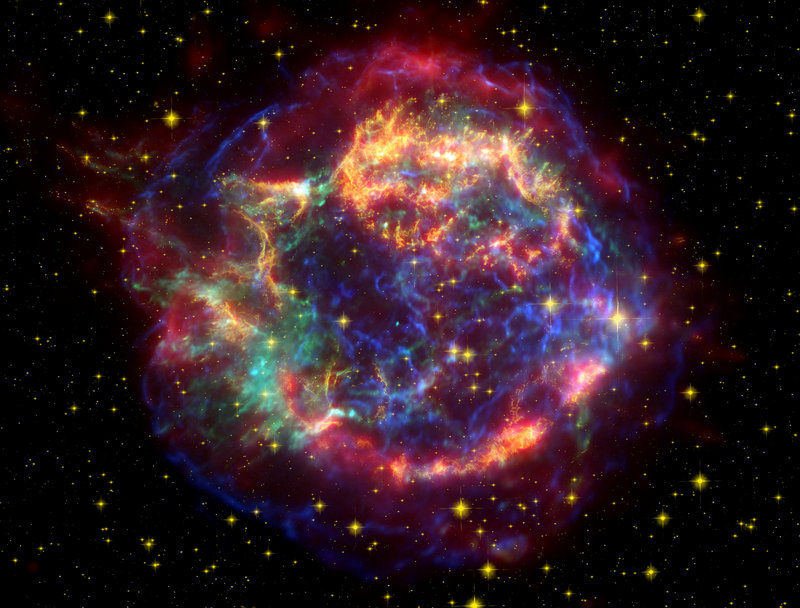GENEVA – Three scientists Tuesday won the Nobel Prize in Physics for discovering that the universe’s expansion is accelerating, shattering their own expectations and raising questions about the dark energy behind the surge.
Saul Perlmutter, 52, of the University of California at Berkeley will get half of the $1.5 million prize, while Brian Schmidt, 44, of the Australian National University in Canberra and Adam Riess, 41, of Johns Hopkins University in Baltimore, will split the rest, the Royal Swedish Academy of Sciences said in Stockholm.
Competing teams, one begun by Perlmutter in 1988, the other by Schmidt six years later, set out to study the most distant exploding stars, known as supernovas, according to the academy. They found that the universe’s expansion was accelerating, confounding their expectations that the pull of gravity would cause it to slow. Riess worked on Schmidt’s team.
“You get a lot of results in astronomy and physics that are said to be groundbreaking, but this was one that really, genuinely was,” Steve Rawlings, a professor of astrophysics at the University of Oxford in England, said in a telephone interview. “It’s a whole new component of the universe that we just didn’t know about before.”
The acceleration led scientists to speculate about the existence of a mysterious force called “dark energy” that is pushing the universe apart, the academy said.
Schmidt, who was born in Missoula, Mont., plans to teach a cosmology class on the subject today, he said by telephone from Canberra.
“I feel weak at the knees,” said the researcher, who is a U.S. and Australian citizen. “I guess it’s one of those things, occasionally people mention it but you think it is probably never going to happen.”
Perlmutter said a journalist woke him with the news.
“It was fun to explain something that was just so basic,” he said in a telephone interview. “When we started this project we thought we were measuring how much the universe was slowing down, but it’s just getting faster and faster.”
The research raises the question of why the universe would have “this odd property.”
Copy the Story Link
Send questions/comments to the editors.



Success. Please wait for the page to reload. If the page does not reload within 5 seconds, please refresh the page.
Enter your email and password to access comments.
Hi, to comment on stories you must . This profile is in addition to your subscription and website login.
Already have a commenting profile? .
Invalid username/password.
Please check your email to confirm and complete your registration.
Only subscribers are eligible to post comments. Please subscribe or login first for digital access. Here’s why.
Use the form below to reset your password. When you've submitted your account email, we will send an email with a reset code.